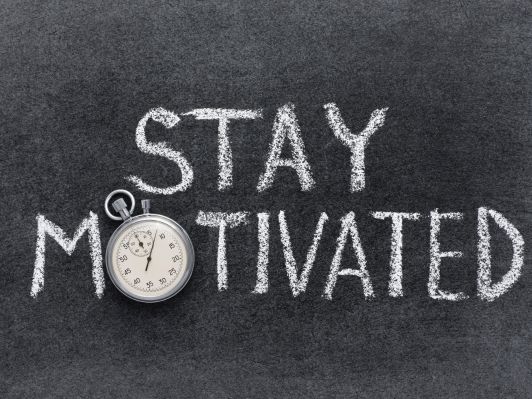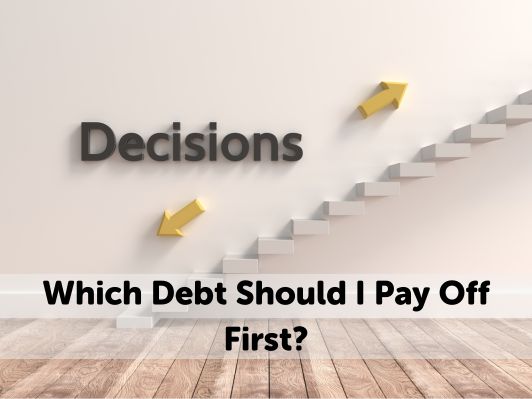Managing debt may seem daunting, but a carefully crafted plan can help you regain financial control and move toward a debt-free future. When handling your debts, smart prioritization is key.
Let’s guide you through the process of determining which debt to pay off first, enabling you to save money, alleviate stress, and pave your path to financial freedom.
Table of Contents
Where to begin with paying off your debts?

When it comes to tackling your debts, a little strategy goes a long way. Here’s a smart way to start:
1. Make a list of your debts
Start by gathering information about all your debts, including the outstanding balance, interest rate, and minimum monthly payment for each. Then sort your debts by the interest rate, from highest to lowest. This step is crucial because high-interest debts can quickly accumulate and cost you more in the long run.
2. Identify high-priority debts
Focus on debts with the highest interest rates first. Why? Well, high-interest debt can quickly spiral out of control. These are typically credit card debts or payday loans. Paying off high-interest debts early can save you a significant amount of money in interest charges.
Allocate any extra money you have towards paying off the debt with the highest interest rate. By doing this, you can save on interest charges over time.
3. Pay the minimum on all debts
Make sure to pay at least the minimum monthly payment on all your other debts, including non-priority debts, to avoid late fees and penalties.
This keeps your accounts in good standing and prevents further damage to other accounts or your credit scores.
4. Consider debt consolidation
If you have multiple debts with high-interest rates, you may want to explore options for consolidating your debts into a single loan with a lower interest rate. This can make it easier to manage your payments and potentially save you money.
5. Create a budget
Develop a budget to track your income and expenses. This will help you identify areas where you can cut back on spending and allocate more money towards debt repayment.
Based on your goals, allocate portions of your income to your fixed expenses, variable expenses, and savings or debt repayment. A common rule of thumb is the 50/30/20 rule, where 50% of your income goes to needs (fixed expenses), 30% to wants (variable expenses), and 20% to savings or debt repayment.
6. Establish an emergency fund
While paying off debt is important, don’t neglect the need for an emergency fund. Having savings set aside for unexpected expenses can prevent you from falling further into debt.
7. Should I pay off my secured or unsecured debts first?
The decision to pay off secured or unsecured debts first can depend on several factors. Here’s a brief explanation of both types of debt:
Secured debt: This is debt that’s backed by an asset, such as a house or car. If you fail to make payments, the lender can take the asset to recover their money. Examples include mortgages and auto loans.
Unsecured debt: This is debt that’s not backed by an asset. If you fail to make payments, the lender can’t immediately seize an asset, but they can take other actions like sending your account to collections or taking you to court. Examples include student loan, personal loan and credit cards.
Generally, it’s important to stay current on all your debts to avoid late fees, damage to your credit score, and potential legal issues. However, when deciding which debts to pay off first, consider the following:
- Interest rates: Unsecured debt often has higher interest rates than secured debts. Paying these off first can save you money in the long run.
- Financial stability: If you’re struggling financially, focusing on secured debts can be a good idea to ensure you don’t lose your home or car.
- Total debt amount: Some people prefer to pay off smaller debts first to reduce the number of outstanding debts and gain a sense of accomplishment.
Remember, everyone’s financial situation is unique, so what works for one person might not work for another. It’s important to consider your own financial goals and circumstances when deciding your debt payoff plan. If you’re unsure, consider seeking advice from a financial advisor
Repayment methods: The debt snowball vs. avalanche
Now, let’s talk strategies! When it comes to tackling multiple debts, two popular methods are the debt snowball and the debt avalanche. Which one’s right for you?
Well, that depends on your personality and priorities.
1. Debt snowball
This method is all about building momentum and staying motivated. Start by paying off your smallest debt first, while making minimum payments on all other debts.
Once that smallest debt is gone, use the extra money you were using to pay it off towards the next smallest debt. This approach can help you stay motivated, see quick wins, save money, and keep you enthusiastic about your debt payoff journey.
2. Debt avalanche
If you are more of a number’s person, the debt avalanche might be your go-to method. Here, you focus on paying off the highest interest debt first.
Mathematically, this approach saves you the most money on interest charges over time. It might take a bit longer to see a debt fully paid off, but you will feel the financial weightlifting as those high balances decrease.
How to stay motivated when paying your debts?

When you owe money, a walk in the park, but it’s a journey worth embarking on. Here are a few more things to keep in mind:
- Stay consistent: Stick to your debt repayment plan and keep chipping away at those balances.
- Celebrate small wins: Every time you pay off a debt, no matter how small, celebrate! Treat yourself to something within your budget.
- Check your credit report: Regularly review your credit report to make sure all your accounts and payments are accurately reported.
- Avoid new debts: While you are on your debt payoff journey, try to avoid taking on new debts. It will make the process smoother.
Bottom line
In conclusion, deciding which debt to pay off first depends on your personal financial situation, the types of debt you have, and your financial goals. If you’re aiming to save on interest over time, you might start paying off debts with the highest interest rates first, often unsecured debt like credit cards.
On the other hand, if you’re looking for a psychological boost and motivation to keep going, you might choose to pay off the smallest debts first, regardless of interest rate.
However, it’s crucial to maintain timely payments on all your debts, both secured and unsecured, to avoid late fees and negative impacts on your credit score.
FAQs
What is the smartest debt to pay off first?
The smartest debt to pay off first is typically the one with the highest interest rate. By targeting debts with the highest interest rates, you minimise the total interest you’ll pay overtime, potentially saving you a significant amount of money.
Can I just pay the minimum monthly payments on several debts?
Yes, you can choose to pay only the minimum payment on your debts, but it may not be the most financially advantageous strategy in the long run.
Is the debt snowball method better than the debt avalanche method?
Both the debt snowball and debt avalanche methods have their merits. The debt snowball offers quick psychological victories by tackling smaller debts initially. Whereas the debt avalanche targets high-interest debts first.
How can I clear my debt without money?
Clearing debt without money can be challenging, but start by creating a budget, cutting unnecessary expenses, and negotiating with creditors. Seek financial assistance if available and explore opportunities to generate extra income. Consider debt consolidation if your credit allows. While it may take time, a proactive approach can help you make progress toward becoming debt-free.
Disclaimer: The information given above is provided for reference only. This is not financial advice.
Related guides:

